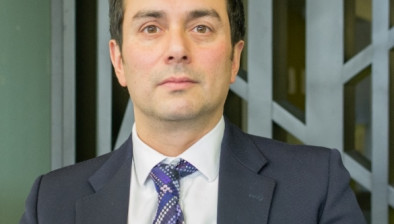Court of Appeal: Time extended for man convicted of manslaughter to appeal sentence but not conviction

Killian Flood BL
The Court of Appeal has allowed an application by a man convicted of manslaughter for an extension of time to appeal his sentence. However, the court refused the man’s application to extend time to appeal his conviction.

About this case:
- Citation:[2021] IECA 185
- Judgment:
- Court:Court of Appeal
- Judge:Mr Justice George Birmingham
Delivering judgment in the case, Mr Justice George Birmingham (President) held that the interests of justice were not served by allowing a late appeal against conviction in circumstances where the grounds of challenge were not sufficiently strong.
The court allowed the appeal against sentence because the potential impact of that appeal was not as great.
Background
The appellant, Mr Marian Lingurar Junior, was convicted of the manslaughter of Mr John Kenny by a jury in January 2019. The appellant was sentenced to nine years’ imprisonment.
The deceased was killed in September 2011 in a pub in Oughterard, County Galway. At the time of the offence, the appellant was 16 years old. He was working as a doorman at the pub on the night in question.
The significant delay between the offence and the trial was the result of the appellant fleeing the jurisdiction for a number of years. It was only after the appellant re-entered the State under a false name that he was charged with the offence.
At trial, the prosecution led evidence that the appellant’s father had driven him to Oughterard and driven them back when the pub closed. The father and the appellant then returned to the pub in Oughterard for 40 minutes before returning to Galway. This evidence was based on mobile phone data obtained under the Communications (Retention of Data) Act 2011.
Several voir dire hearings occurred during the trial on various aspects of the evidence in the case. On the proposed appeal against conviction, the appellant wished to raise three grounds: 1) the admissibility of the telephone evidence, 2) the admissibility of memoranda of interview prior to his arrest and 3) the admissibility of memoranda of interviews after arrest and detention. Further, the appellant challenged the severity of sentence imposed on him, having regard to the fact that he was 16 when the killing happened.
The appellant instructed his solicitor to appeal the conviction and a notice of appeal was lodged in June 2019. However, the notice was defective insofar as it did not recite any grounds of appeal, which were to be provided later. It was noted that the notice was filed on the final day in which an appeal could be lodged.
The Director of Public Prosecutions objected to the late appeal being allowed, stating that the case against the appellant was strong and unlikely to be interfered with on appeal. The daughter of the deceased also provided evidence of the significant impact of the killing on her and her family, as well as the lengthy criminal process.
Court of Appeal
The court began its analysis by citing The People (DPP) v. Kelly [1982] IR 90, which held that a court must consider an application to extend time to appeal in the context of the interest of justice. In other words, a court must consider the facts of each case and decide whether the interests of justice required the late appeal to be heard.
The court identified a number of factors in the case which were relevant to its determination. First, the court noted that there had been significant delay in the case and hearing the appeal would inevitably lead to further delay. The family of Mr Kenny had been terribly impacted by the protracted proceedings already, the court said.
However, the court also accepted that the appellant bore no responsibility for the failure to raise the appeal in the case. It had always been his intention and express instruction to bring an appeal against conviction and sentence.
The court said that “a degree of confusion” existed for the appellant’s lawyers in the case because an appeal for Marian Lingurar appeared in various Court of Appeal lists at times. It seemed that the appellant’s lawyers thought that this appeal was for the appellant, when it in fact related to the father, who bore the same name.
Counsel for the appellant had acknowledged that there was no “slam dunk” point raised in the appeal which showed a clear error by the trial judge. However, it had been submitted that the potential appeal raised serious issued and there was no guarantee that the appellant would fail.
The court then turned to assess the strengths of each ground of appeal. It was held that a ground of appeal had to be strong in order to allow the late appeal (DPP v. Corbally [2001] 1 IR 180).
On the issue of mobile phone data, the court was not persuaded that there was a strong case for the evidence to be excluded. The evidence was obtained following a targeted access to record and not a generalised trawl. It was not at all likely that a court would use its discretion to exclude evidence of the commission of serious crime.
On the issue of the memoranda of interviews, the court held that the Corbally threshold was not “crossed, or indeed, threatened to be crossed.” No information had been placed before the court that suggested a strong likelihood that the judge’s ruling should be reversed. As such, the interests of justice were not served by allowing a late appeal against conviction.
However, the court held that the severity of sentence could be appealed. The court said that a point of substance was identified regarding the young age of the appellant and that the offence was committed while he was in the company of adults.
The court held that the potential impact of hearing the appeal against sentence would not have as great an impact on the family of Mr Kenny because there would be no possibility of retrial and, therefore, further delay.
Conclusion
The court allowed the appellant an extension of time to appeal against the imposed sentence, but refused the application to appeal his conviction.









